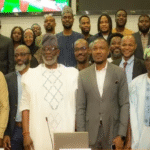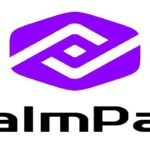… Call For Inclusivity, Using Technologies, Without Religious Bias
By CHIDIEBERE NWANKWO
Nigeria’s Vice President, Kashim Shettima and the 14th Emir of Kano and former Governor of the Central Bank of Nigeria, His Royal Highness Khalifa Muhammadu Sanusi II, were among stakeholders advocating for the ethical use of Islamic Financing instruments as a means of addressing the multi-faceted challenges associated with financial and economic inclusive growth in Nigeria, and Africa at large.
Speaking at the 7th African International Conference on Islamic Finance (AICIF) 2025 held in Lagos, stakeholders, through Keynotes and Panel Discussions, harped on the viability of Islamic Financing as a bridge to cost-effective infrastructure development, youth empowerment, and reaching the over 40 million funding-starved SMEs, that employ 70% of the Nigerian workforce, especially those in rural.
The 2-day event, held on November 4-5, 2025, was organized by the Securities and Exchange Commission (SEC) Nigeria, Metropolitan Skills Limited, and Metropolitan Law Firm, under the theme: “Africa Emerging: A Prosperous and Inclusive Outlook.”
Delivering a keynote address, His Royal Highness, Khalifa Muhammadu Sanusi II, commended the convener for her steadfast commitment to promoting Islamic finance. He traced the evolution and notable growth of the Islamic finance industry in Nigeria, emphasizing its critical role in fostering equitable development. He further called for the
Pledging the organisation’s support, President and CEO of the Africa Finance Corporation (AFC), Alhaji Samaila Zubairu, in his keynote presentation, underscored the transformative potential of Artificial Intelligence (AI) as a game-changer in democratizing financial knowledge. He noted AFC’s sustained efforts in mobilizing Islamic finance instruments to fund infrastructure projects across Africa — including a $50 million commitment in 2015, the first Sukuk issuance in 2017, and a second Mudarabah Sukuk in 2025 — with tangible impacts in countries such as Djibouti and others.
In her welcome address, Chief Convener and Conference Chairperson, Ms. Ummahani Ahmad Amin, welcomed participants and noted that AICIF, now in its 14th year since its inception in 2013, continues to promote inclusiveness and sustainability through the development of non-interest financial systems. She also highlighted the establishment of the Metropolitan Awqaf initiative aimed at supporting marginalized and vulnerable groups within society.
She said: “Despite the progress recorded over the years, Africa is yet to fully harness the potential of Islamic finance as a viable source of catalytic capital to meet its annual infrastructure financing needs estimated to be between $130 billion to $170 billion.”
She further noted that with global Islamic finance asset standing at $3.88 trillion in 2024, with a 14.9% year-on-year increase, a reflection of the positive impact of strengthening regulatory frameworks and growing investor confidence, Nigeria and Africa as a whole, do not have a reason not to tap into this instrument to tackle challenges.
Ms. Ummahani recommended Sukuk and other Islamic financial instruments to serve as effective drivers of financial intermediation and macro-financial stability across the continent.
Delivering a goodwill message on behalf of the Vice President of the Federal Republic of Nigeria, Special Adviser to the President on Economic Affairs (Office of the Vice President), Mr. Tope Kolade Fasua, highlighted the Federal Government’s economic reforms and the pivotal role of sovereign sukuk in addressing Nigeria’s infrastructure deficit. Since 2017, the Federal Government has leveraged sukuk to rehabilitate and construct over 120 roads spanning more than 6,000 kilometers nationwide.
Chairman, Board of the Securities and Exchange Commission (SEC) Nigeria, Mr. Mairiga Katuka, while declaring the conference open, underscored the importance of the AICIF platform in shaping regulatory discourse and strengthening policy frameworks to deepen Nigeria’s non-interest capital market and support sustainable growth.
Participants noted that the widely cited $200 billion infrastructure gap for Africa is grossly underestimated, as Nigeria alone requires close to $1 trillion to bridge its infrastructure needs. The panel acknowledged ongoing efforts by SEC Nigeria and the Nigerian Exchange Limited (NGX) in facilitating the listing of Shariah-compliant instruments and commended the contributions of Lotus Financial Services and other market players in expanding Islamic investment options. They concluded that Islamic finance instruments, particularly Sukuk, present viable options for closing Africa’s infrastructure financing gap, ensuring both sustainability and social impact.
Participants, while calling for a robust Shari’ah governance framework to ensure end-to-end compliance, integrity, and trust, emphasized the need for greater integration of Fintech and tokenization of real-world assets to improve access to Islamic finance products and financing opportunities, particularly for SMEs. Also, innovators should drive regulations.
Part of the framework will be for de-risking agricultural value chains, including planting, logistics, cold storage, and distribution, to further deepen commodity trading ecosystem.
Participants strongly called for public enlightenment and information dissemination that will educate both service providers and consumers of financial services of the need to separate Islamic finance instruments from the Islamic religion, pointing out that the instruments, as financial transactions, are for both muslims and non-muslims.
While recognizing that empowering the people is required in driving Africa’s prosperity, especially in its promotion of entrepreneurship, innovation, and social impact, AICIF, in partnership with SEC, organized a pitch competition ahead of the conference to support promising startups with seed capital to scale their ideas and solutions.
In the technology category, BetaLife Health clinched first prize with an AI-driven platform that optimizes blood supply across hospitals, blood banks and donours. Zanny Tecture won in the social impact category with an inspirational model that turns discarded tires and PET bottles into functional, eco-friendly products.








